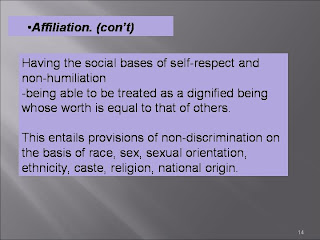Thursday, February 28, 2013
A Primer: The Gender Equality Resource Center for Philippine Co-ops
What is gender equality? What is the gender equality resource center (GERC) and how can it help a co-op strengthen even more its implementation of gender-related activities that can benefit its own organization? How can other organizations tap the co-op's gender expertise through the GERC?
The Asian Women in Co-operative Development Forum (AWCF)'s new publication "A Primer: The Gender Equality Resource Center for Philippine Co-ops" gives the reader the basics on the setting up and operation of gender equality resource centers (GERCs). The GERCs will greatly help ensure that gender equality (GE) is mainstreamed and embedded in co-operatives. The setting up of GERCs in co-ops was among the thrusts of a GE project in the Philippines that the AWCF implemented in 2010-2012, with support from the Swedish Cooperative Centre (SCC). Fifteen progressive primary- and federation-level co-ops from all over the country took part in that project. Co-ops are viable business enterprises with social goals that reach out even to the remotest areas and to people of the simplest means who are building their future together through co-operation. GERCs will equip co-ops with even more structure and focus, through advocating and promoting GE, in improving the lives of the women and men members and all others involved in the co-ops.
Going beyond the 15 co-ops involved in its GE project in the Philippines, AWCF is urging any and all co-ops in the country to establish GERCs or, at least, to strengthen their gender-related services. Data and experiences show that GE advocacy, capacities, and practices of and by co-ops help them to contribute even more to the development of the members and communities that, as a whole, assists in nation-building. Inputs from AWCF's consultations with the co-ops involved in its Philippines GE project enrich the contents of this GERC Primer. The co-ops involved in the Project, as strong and committed GE advocates, help strengthen and animate the country’s co-op movement with their various gender-related activities and advocacies that benefit their own organizations as well as other groups that are increasingly utilizing their GE services and expertise. These co-ops are also in the various stages of setting up and operating their own GERCs.
For more information on the Primer and on gender equality in co-ops, please e-mail awcf@coopwomen.org
Monday, January 14, 2013
(New Book) "Gender Equality: Empowering Women and Men, and Co-ops--Stories of the Gender Journey of Co-ops in the Philippines"
In
2010-2012, 15 primary and federation-level co-ops in the Philippines took on a great challenge. By
being partner-co-ops for those three years in the Project “Promoting Gender Equality Among Co-operatives in the Philippines” of the AWCF, the 15 co-ops committed to advocate,
promote, and institutionalize in their co-ops the matter of “gender equality”
or GE. Engaging in GE was, indeed, a great challenge for the co-ops because of
many factors, such as, but not limited to:
- most of them knew little about GE before the start of the Project
- engaging in GE meant changing not only organizational mindsets but also personal mindsets—which presented wide-ranging challenges (rooted in culture and tradition) that required utmost patience and creativity for the co-ops
- promoting and integrating GE in various aspects of co-op operations also means having to answer almost inevitable questions on the socio-economic benefits that the co-op and the members will get from being gender-aware and gender-sensitive or, in short, “what’s in it for the co-op and the members?”
- engaging in GE and achieving results leads to the thinking of what then can co-ops do even more to further level up GE as an integrated and continuing concern of the co-ops?
The inspiring stories told in the book of how these co-ops were and are able to benefit from, promote, and spread the GE advocacy will hopefully motivate even more co-ops to also take up GE in their organizations. GE is good for business, and the benefits to be gained will ultimately redound to the welfare of the members and, to a even larger extent, the community.
The other partner-co-ops of the GE Project were: Abra Diocesan Teachers and Employees Multi-purpose Cooperative (MPC); Nueva Segovia Consortium of Cooperatives; St. Martin of Tours Credit and Development Cooperative; Sacred Heart Credit Development Co-op; Don Bosco Network MPC; Cordova MPC; Dumanjug MPC; Metro Ormoc Community Cooperative; Mindanao State University-Iligan Institute of Technology MPC; Paglaum MPC; Panabo MPC; and Pantukan Chess Club Cooperative.
The GE Project was implemented by AWCF in co-operation with the Swedish Cooperative Center (SCC) and its “ACCESS to the Poor” Philippine country program, with support from the Swedish International Development Cooperation Agency (SIDA). Inquiries on the book ”Gender Equality: Empowering Women and Men, and Co-ops—Stories of the Gender Journey of Co-ops in the Philippines” may be directed by e-mail to awcf@coopwomen.org
Saturday, January 12, 2013
AWCF attends ICA regional women’s meet
 | |
| Ms Kruewan and Ms Ganibe of AWCF (2nd and 8th from right) |
The events’ participants visited also the COOP KOBE, the world’s largest consumers co-op, for an exchange of information and experience with co-op members of Japan.
Subscribe to:
Posts (Atom)



























































































































